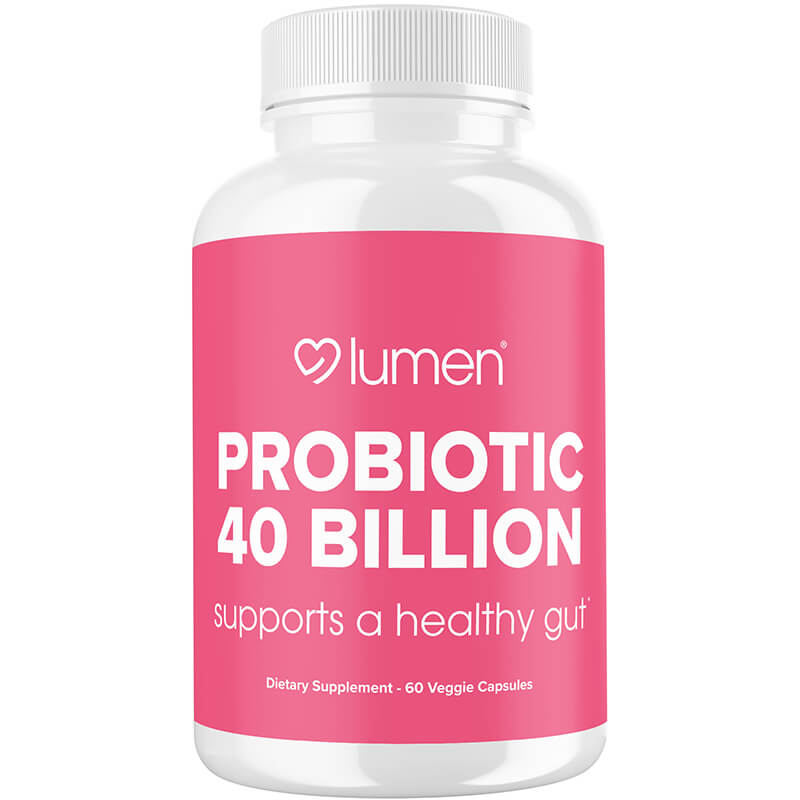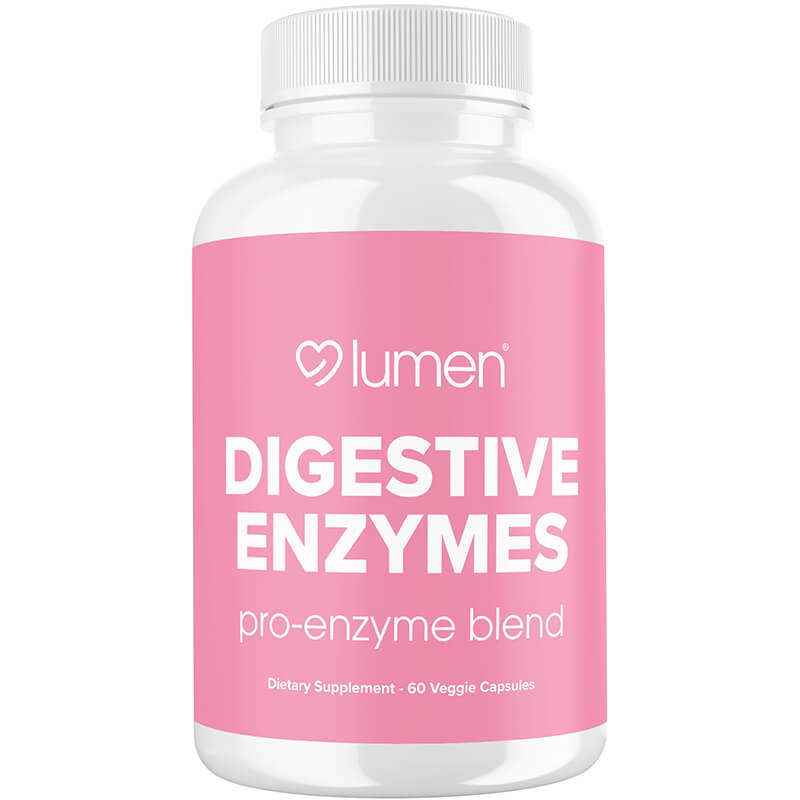Four Reasons Chlorella is the Ultimate Superfood
This nutrient-dense green alga has some surprising health benefits
Four Reasons Chlorella is the Ultimate Superfood
This nutrient-dense green alga has some surprising health benefits
Chlorella, a genus of single-celled green algae, is the ultimate superfood in many ways. And we don't use the term superfood lightly. Out of many contenders on the list, chlorella makes it to the top, even among foods such as spirulina or probiotics. Unsurprisingly, a growing body of evidence supports the incredible health benefits of this tiny green alga.
This so-called fix-all alga is a powerful antioxidant and contains generous amounts of key nutrients like protein, vitamins, dietary fiber, omega-3 polyunsaturated fatty acids, polysaccharides, and iron. It is a complete food that contains a unique blend of key micro and macro-nutrients.
For this reason, Chlorella is often considered among the most nutritious plant-based supplement on the earth. It can also help promote weight loss, enhance the immune system through fostering a healthy microbiota, improve liver function, and protect from certain cancers that have a dietary component. but the benefits don't end there.
Chlorella, a genus of single-celled green algae, is the ultimate superfood in many ways. And we don't use the term superfood lightly. Out of many contenders on the list, chlorella makes it to the top, even among foods such as spirulina or probiotics. Unsurprisingly, a growing body of evidence supports the incredible health benefits of this tiny green alga.
This so-called fix-all alga is a powerful antioxidant and contains generous amounts of key nutrients like protein, vitamins, dietary fiber, omega-3 polyunsaturated fatty acids, polysaccharides, and iron. It is a complete food that contains a unique blend of key micro and macro-nutrients.
For this reason, Chlorella is often considered among the most nutritious plant-based supplement on the earth. It can also help promote weight loss, enhance the immune system through fostering a healthy microbiota, improve liver function, and protect from certain cancers that have a dietary component. but the benefits don't end there.
What is Chlorella? A Quick Look at the Nutrients
What is Chlorella? A Quick Look at the Nutrients
Chlorella is a unicellular alga native to Japan and Taiwan. Chlorella is typically consumed in supplement form, and many supplements contain broken cell wall chlorella, which is easier to absorb and offers superior benefits to its counterpart.
As one of the few plant sources of vitamin B12, chlorella has also shown a promising role in the treatment of vitamin B12 deficiency for those following a vegan or vegetarian diet. This is because meat and other animal products in one's diet are often the major sources of vitamin B 12.
Unlike many other supplements that should be either used with caution or avoided during pregnancy, chlorella may be potentially safe for use during pregnancy. In fact, a 2014 study found that chlorella intake during pregnancy is effective in improving the levels of healthy substances called carotenoids in breast milk. However, because pregnancy is a critical period for both the mother and child, one should always consult a doctor before making big diet decisions such as taking a chlorella supplement.
Chlorella is a unicellular alga native to Japan and Taiwan. Chlorella is typically consumed in supplement form, and many supplements contain broken cell wall chlorella, which is easier to absorb and offers superior benefits to its counterpart.
As one of the few plant sources of vitamin B12, chlorella has also shown a promising role in the treatment of vitamin B12 deficiency for those following a vegan or vegetarian diet. This is because meat and other animal products in one's diet are often the major sources of vitamin B 12.
Unlike many other supplements that should be either used with caution or avoided during pregnancy, chlorella may be potentially safe for use during pregnancy. In fact, a 2014 study found that chlorella intake during pregnancy is effective in improving the levels of healthy substances called carotenoids in breast milk. However, because pregnancy is a critical period for both the mother and child, one should always consult a doctor before making big diet decisions such as taking a chlorella supplement.
Four Amazing Health Benefits of Chlorella
Four Amazing Health Benefits of Chlorella
1. Chlorella helps reduce dangerous blood-fat levels
Abnormally high amounts of fat in the bloodstream can clog the blood vessels and possibly lead to heart attacks and strokes. But a daily intake of chlorella might offer some protection from an abnormal blood-lipid profile.
In one study, researchers found that participants who consumed chlorella daily for four weeks achieved a significant drop in blood levels of triglycerides, a type of fat, and total cholesterol.
2. Boosts immune system naturally
Chlorella has been long revered for its immune-enhancing properties. It comes as no surprise that a wealth of scientific study supports this.
For example, one of such studies noted that an 8-week supplementation of chlorella considerably improved the immune function by increasing the activity of specific immune cells called the natural killer cells and the production of cytokines. Most importantly, this high-quality study involved human participants, which offers the best support for these claims.
3. A powerful antioxidant that works to protect against dementia
Antioxidants prevent cellular damage by neutralizing the effects of harmful chemicals called free radicals. When free radicals become abundant, the body’s natural antioxidant system can fail to control them, and this can lead to oxidative damages in the cells. Because chlorella is a powerful antioxidant, it works to trap the free radicals and render them ineffective. This activity saves the cells from oxidative stress.
Oxidative stress is one of the major causes of dementia. Dementia is a group of neurodegenerative diseases that cause cognitive decline and problems with memory, decision- making, and overall thinking processes. Regular consumption of chlorella may help reduce oxidative stress and significantly prevent cognitive decline, as shown in this study.
4. It helps detoxification of heavy metals from the body
An accumulation of toxic heavy metals such as lead and cadmium disrupt the functions of major organs like the heart, brain, kidneys, bone, liver etc. In some cases, acute exposure to any of these metals may be potentially life-threatening. Many of us might be carrying these metals in our body due to environmental exposure, and sadly, we may never know it.
Chlorella helps detoxification primarily in two ways. First, because of its high fiber content, it significantly reduces the absorption of heavy metals from the digestive tract. Second, through unique binding processes, chlorella promotes the elimination of heavy metals through urine and feces.
1. Chlorella helps reduce dangerous blood-fat levels
Abnormally high amounts of fat in the bloodstream can clog the blood vessels and possibly lead to heart attacks and strokes. But a daily intake of chlorella might offer some protection from an abnormal blood-lipid profile.
In one study, researchers found that participants who consumed chlorella daily for four weeks achieved a significant drop in blood levels of triglycerides, a type of fat, and total cholesterol.
2. Boosts immune system naturally
Chlorella has been long revered for its immune-enhancing properties. It comes as no surprise that a wealth of scientific study supports this.
For example, one of such studies noted that an 8-week supplementation of chlorella considerably improved the immune function by increasing the activity of specific immune cells called the natural killer cells and the production of cytokines. Most importantly, this high-quality study involved human participants, which offers the best support for these claims.
3. A powerful antioxidant that works to protect against dementia
Antioxidants prevent cellular damage by neutralizing the effects of harmful chemicals called free radicals. When free radicals become abundant, the body’s natural antioxidant system can fail to control them, and this can lead to oxidative damages in the cells. Because chlorella is a powerful antioxidant, it works to trap the free radicals and render them ineffective. This activity saves the cells from oxidative stress.
Oxidative stress is one of the major causes of dementia. Dementia is a group of neurodegenerative diseases that cause cognitive decline and problems with memory, decision- making, and overall thinking processes. Regular consumption of chlorella may help reduce oxidative stress and significantly prevent cognitive decline, as shown in this study.
4. It helps detoxification of heavy metals from the body
An accumulation of toxic heavy metals such as lead and cadmium disrupt the functions of major organs like the heart, brain, kidneys, bone, liver etc. In some cases, acute exposure to any of these metals may be potentially life-threatening. Many of us might be carrying these metals in our body due to environmental exposure, and sadly, we may never know it.
Chlorella helps detoxification primarily in two ways. First, because of its high fiber content, it significantly reduces the absorption of heavy metals from the digestive tract. Second, through unique binding processes, chlorella promotes the elimination of heavy metals through urine and feces.
Chlorella is a unicellular alga native to the coasts of Japan and Taiwan.
Want to Experience the Benefits of Chlorella for Yourself?
Want to Experience the Benefits of Chlorella for Yourself?
Given all the incredible health benefits of chlorella, it's no wonder many people are starting to include it in their diet. But not all sources of chlorella (or chlorella supplements) are equal, and here are a few pointers you might find helpful:
- Though chlorella is safe and highly effective, certain viruses can infect batches that are made with unsafe manufacturing practices.
- Additionally, certain extracts of chlorella may have properties similar to those of an endotoxin. A high dose of endotoxin can lead to multiorgan failure in some people.
Given those two important points above, we recommend trying a high-quality supplement like Lumen Naturals Chlorella Detox Super Greens, which is manufactured at an FDA-registered facility and does not contain any contaminants. Best of all, each batch is third-party tested for impurities and contains only the most effective strains of chlorella.
Given all the incredible health benefits of chlorella, it's no wonder many people are starting to include it in their diet. But not all sources of chlorella (or chlorella supplements) are equal, and here are a few pointers you might find helpful:
- Though chlorella is safe and highly effective, certain viruses can infect batches that are made with unsafe manufacturing practices.
- Additionally, certain extracts of chlorella may have properties similar to those of an endotoxin. A high dose of endotoxin can lead to multiorgan failure in some people.
Given those two important points above, we recommend trying a high-quality supplement like Lumen Naturals Chlorella Detox Super Greens, which is manufactured at an FDA-registered facility and does not contain any contaminants. Best of all, each batch is third-party tested for impurities and contains only the most effective strains of chlorella.
Experience The Benefits Yourself
Visit Our Store Page to View All Our Products
References
1. Panahi, Y., Darvishi, B., Jowzi, N., Beiraghdar, F., & Sahebkar, A. (2016). Chlorella vulgaris: a multifunctional dietary supplement with diverse medicinal properties. Current pharmaceutical design, 22(2), 164-173.
2. Kittaka-Katsura, H., Fujita, T., Watanabe, F., & Nakano, Y. (2002). Purification and characterization of a corrinoid compound from Chlorella tablets as an algal health food. Journal of agricultural and food chemistry, 50(17), 4994-4997.
3. Nagayama, J., Noda, K., Uchikawa, T., Maruyama, I., Shimomura, H., & Miyahara, M. (2014). Effect of maternal Chlorella supplementation on carotenoid concentration in breast milk at early lactation. International journal of food sciences and nutrition, 65(5), 573-576.
4. Ryu, N. H., Lim, Y., Park, J. E., Kim, J., Kim, J. Y., Kwon, S. W., & Kwon, O. (2014). Impact of daily Chlorella consumption on serum lipid and carotenoid profiles in mildly hypercholesterolemic adults: a double-blinded, randomized, placebo-controlled study. Nutrition journal, 13(1), 57.
5. Kwak, J. H., Baek, S. H., Woo, Y., Han, J. K., Kim, B. G., Kim, O. Y., & Lee, J. H. (2012). Beneficial immunostimulatory effect of short-term Chlorella supplementation: enhancement of natural killer cell activity and early inflammatory response (randomized, double-blinded, placebo-controlled trial). Nutrition journal, 11(1), 53.
6. Zhang, J. M., & An, J. (2007). Cytokines, inflammation and pain. International anesthesiology clinics, 45(2), 27.
7. Nakashima, Y., Ohsawa, I., Konishi, F., Hasegawa, T., Kumamoto, S., Suzuki, Y., & Ohta, S. (2009). Preventive effects of Chlorella on cognitive decline in age-dependent dementia model mice. Neuroscience letters, 464(3), 193-198.
8. Queiroz, M. L., Rodrigues, A. P., Bincoletto, C., Figueirêdo, C. A., & Malacrida, S. (2003). Protective effects of Chlorella vulgaris in lead-exposed mice infected with Listeria monocytogenes. International immunopharmacology, 3(6), 889-900.
9. Shim, J., Son, Y., Park, J. M., & Kim, M. K. (2009). Effect of Chlorella intake on Cadmium metabolism in rats. Nutrition research and practice, 3(1), 15-22.
10. Yolken, R. H., Jones-Brando, L., Dunigan, D. D., Kannan, G., Dickerson, F., Severance, E., ... & Agarkova, I. V. (2014). Chlorovirus ATCV-1 is part of the human oropharyngeal virome and is associated with changes in cognitive functions in humans and mice. Proceedings of the National Academy of Sciences, 111(45), 16106-16111.
11. Royce, C. L., & Pardy, R. L. (1996). Endotoxin-like properties of an extract from a symbiotic, eukaryotic Chlorella-like green alga. Journal of Endotoxin Research, 3(6), 437-444.
References
1. Panahi, Y., Darvishi, B., Jowzi, N., Beiraghdar, F., & Sahebkar, A. (2016). Chlorella vulgaris: a multifunctional dietary supplement with diverse medicinal properties. Current pharmaceutical design, 22(2), 164-173.
2. Kittaka-Katsura, H., Fujita, T., Watanabe, F., & Nakano, Y. (2002). Purification and characterization of a corrinoid compound from Chlorella tablets as an algal health food. Journal of agricultural and food chemistry, 50(17), 4994-4997.
3. Nagayama, J., Noda, K., Uchikawa, T., Maruyama, I., Shimomura, H., & Miyahara, M. (2014). Effect of maternal Chlorella supplementation on carotenoid concentration in breast milk at early lactation. International journal of food sciences and nutrition, 65(5), 573-576.
4. Ryu, N. H., Lim, Y., Park, J. E., Kim, J., Kim, J. Y., Kwon, S. W., & Kwon, O. (2014). Impact of daily Chlorella consumption on serum lipid and carotenoid profiles in mildly hypercholesterolemic adults: a double-blinded, randomized, placebo-controlled study. Nutrition journal, 13(1), 57.
5. Kwak, J. H., Baek, S. H., Woo, Y., Han, J. K., Kim, B. G., Kim, O. Y., & Lee, J. H. (2012). Beneficial immunostimulatory effect of short-term Chlorella supplementation: enhancement of natural killer cell activity and early inflammatory response (randomized, double-blinded, placebo-controlled trial). Nutrition journal, 11(1), 53.
6. Zhang, J. M., & An, J. (2007). Cytokines, inflammation and pain. International anesthesiology clinics, 45(2), 27.
7. Nakashima, Y., Ohsawa, I., Konishi, F., Hasegawa, T., Kumamoto, S., Suzuki, Y., & Ohta, S. (2009). Preventive effects of Chlorella on cognitive decline in age-dependent dementia model mice. Neuroscience letters, 464(3), 193-198.
8. Queiroz, M. L., Rodrigues, A. P., Bincoletto, C., Figueirêdo, C. A., & Malacrida, S. (2003). Protective effects of Chlorella vulgaris in lead-exposed mice infected with Listeria monocytogenes. International immunopharmacology, 3(6), 889-900.
9. Shim, J., Son, Y., Park, J. M., & Kim, M. K. (2009). Effect of Chlorella intake on Cadmium metabolism in rats. Nutrition research and practice, 3(1), 15-22.
10. Yolken, R. H., Jones-Brando, L., Dunigan, D. D., Kannan, G., Dickerson, F., Severance, E., ... & Agarkova, I. V. (2014). Chlorovirus ATCV-1 is part of the human oropharyngeal virome and is associated with changes in cognitive functions in humans and mice. Proceedings of the National Academy of Sciences, 111(45), 16106-16111.
11. Royce, C. L., & Pardy, R. L. (1996). Endotoxin-like properties of an extract from a symbiotic, eukaryotic Chlorella-like green alga. Journal of Endotoxin Research, 3(6), 437-444.




